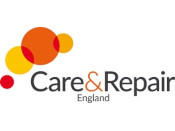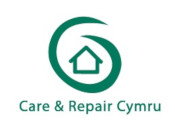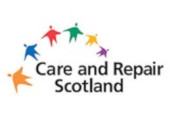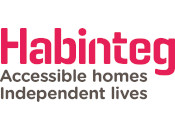
Adapting your home: planning and funding
Adapting your home: planning and funding
This factsheet is available for sponsorship, email marketing@dlf.org.uk
Sponsorship has no influence on our impartial content
Factsheet contents
Introduction
Works to improve access to your home, get around more easily and safely and use key facilities such as the bathroom, kitchen and bedroom are most commonly called home adaptations or home modifications. The general purpose of a home adaptation is to make it easier and safer for you or a family member to get around your home, maximise your independence, and make it easier for others to assist you if required.
Not everyone wants to or is able to move when their home becomes harder to manage or daily tasks become more difficult to accomplish. So making sure that your home is easier to live in and as functional as possible can significantly and positively affect your quality of life.
Further information on adapting your home can also be found in the following DLF fact sheets:
The bathroom
The kitchen
Access into and around your home
Adapting your home: vision and hearing impairment or loss
Managing cognitive impairment and challenging behaviour
Why may I need to adapt my home?
There are a variety of conditions that can affect your mobility, strength, grip, breathing, energy and stamina and these can make simple everyday tasks more challenging. For example:
- Some conditions that cause pain can restrict movement
- Some conditions that affect memory can make it more difficult to get around the home and find the things you need
- Some conditions are progressive, causing things to become increasingly difficult over time
- Other conditions can affect behaviour and can make parts of the home unsafe.
If you are caring for a child with a disability or a person who has any of these difficulties, changes to your home will assist you in providing care and can promote their independence.
What are the benefits of adapting my home?
Adapting your home to suit your needs can help to:
- increase and/or maintain your level of independence
- reduce the risk of falls and accidents
- reduce need for help or care at home
- reduce risk of hospital admissions
- support those who are providing care to others
- avoid or delay the need for residential care.
The scale of work required varies from person to person. These can be small scale, e.g. the addition and use of aids and equipment, through to larger scale adaptions. The most common reasons for adapting the home are to help individuals with:
- getting in and out of the bath or shower
- climbing up and down the stairs
- entering and leaving the home safely and accessing the garden or other outdoor areas
- moving around the home if they are a wheelchair user or require a walking aid
- using the kitchen or bathroom
- operating switches and controls, for example doors, windows openers, electronic control of lights, TV, radio etc.
- ensuring those with behavioural disorders are safe within the home.
Adaptions can also be carried out to make room for specialist equipment to help you get on and off the bed, chair or toilet or to create space to enable a carer to assist you to manage tasks.
Examples of the types of adaptations that can be made include:
- Adapting within the existing property e.g. installing a level access shower, wash/dry toilet or stair lift
- Adapting the outside of a property to provide access to the home or garden via a ramp or level and widened path
- Extending the property to create more space or an additional accessible area
- Installing a pod/modular building to add on another room or extend the existing space
- Adapting the kitchen or bathroom to make it accessible and safe.
What should I consider before getting work done?
Think about what you currently need and may need in the future. Whilst none of us know what’s around the corner, those who have certain medical conditions may have a better idea, particularly if the condition is of a deteriorating nature. For adults there are a number of different conditions, including arthritis, Parkinson’s disease, multiple sclerosis (MS), motor neurone disease (MND), dementia and conditions that cause visual impairments, that can progress to varying degrees over time. There will be differences in how these conditions affect each individual and how they manage everyday activities. Often your abilities may fluctuate. Some days you are able to do a lot more, and some days very little. It is important to take these factors into account when planning an adaptation, to ensure that it will meet all your needs. Because adaptations may involve permanent and structural alterations to your home, it is best to consider whether they will meet your needs in the long term. It may be best to make larger alterations when you have the time to consider the design thoroughly, rather than having to rush into making decisions because of an emergency.
Children may also have long term conditions which need to be thought about. This may be a condition which remains stable as they mature, one which delays or prevents normal development or may deteriorate over time. For young children the size of their equipment may suggest extra space is not needed, but as they grow their equipment will grow too. Allowing for larger equipment which may be needed in the future will mean further adaptations won’t be required.
Consider the whole environment. Can you make alterations which will enable you to use all parts of your home, or at least the areas most important to you? For example, would it be better to adapt the downstairs bathroom and change a ground floor room into a bedroom if the stairs are becoming very difficult to climb? Would you be able to use a stair lift? And would it be possible and suitable to install a stair lift if needed in future?
What about other members of the household - will they be able to use the adaptations? Will they need other facilities? If you have children for example will you need a bath as well as a shower?
Consider how it is going to look. Can I still make it feel like home? Can it meet my needs but not look like a hospital environment? There are a number of products and designs available now that are less clinical in appearance that are designed for people with wide range of impairments to use.
What if it is not feasible adapt your home?
There are situations when adapting a home simply isn’t practical or physically possible and you may need to consider extending or possibly even moving. Sometimes moving may be the only or most sensible solution if the adaptations would be too difficult or expensive to carry out. If moving is something you wish to consider, there are a number of options depending on whether you own or rent your property. You can find out about moving to more accessible accommodation via the First Stop website.
Your local Housing/Re-housing department will also be your first point of contact if you are in rented social housing. They may recommend obtaining an Occupational Therapy re-housing assessment to help identify your housing needs, so that the right property can be found for you. Again, if you have a young child, when identifying a suitable property you will need to think about the long term and how their needs may change and what equipment may be provided.
Seeking professional help and guidance
Before any work is undertaken the following should be considered:
- Will I need planning permission?
- Which building regulations and design guidance do I need to consider?
- Will I need to consult an Occupational Therapist?
- Will I need to consult a surveyor or an architect ?
- Where will I find a contractor if I am funding the adaptation myself?
- Is there funding available to help me?
- What will Social Services do?
It’s advisable to get advice from an Occupational Therapist who specialises in housing adaptions. S/he will be able to carry out an assessment of your needs and work with you to identify appropriate solutions. You may be entitled to an assessment by a local authority Social Services Occupational Therapist. Alternatively a list of independent Occupational Therapists can be found on The Royal College of Occupational Therapists' website
Before you consider arranging to adapt your home yourself, it’s advisable to get advice on whether you are eligible for funding as a homeowner, private tenant, council tenant, or housing association tenant. Any funding that is available will not be paid if the work has already been done.
If you rent privately you will need to obtain explicit written permission to adapt the property you live in. If you are a tenant of a Housing Association property they may have their own Occupational Therapist or Re-housing process, or you will need to contact your local authority in the first instance.
Your Local Authorities Home Improvement Agency (HIA) may be able to advise you on funding and the support services they offer. Many agencies have an approved contractors lists which may be helpful in finding an appropriate builder if you are funding your own works. It is important that you seek advice from surveyors and/or contractors who are familiar with the practicalities of carrying out these kinds of adaptations. They can advise you on whether the proposed works are feasible, and how much they might cost and whether planning permission/building regulations are required.
Provision of equipment
There are a few options available for funding of equipment and minor adaptations; this can vary across the UK. We provide an overview of the options available here, but it is worthwhile checking what arrangements are in place locally.
In England, if you are assessed as requiring preventative intervention, equipment under £1000 would be free of charge to you (Department of Health 2014, section 2.9). In Scotland, Local Authorities make their own arrangements for provision of minor adaptations and details can be accessed via your Council website. If the equipment or adaptation costs more that £1000, you may have to apply for a Disabled Facility Grant (Mandelstam 2016).
The Money Advice Service has some useful information about funding for adaptations.
It is recommended that you seek advice from an occupational therapist before considering which equipment is suitable to you. You may be entitled to an assessment by a Local Authority Social Services Occupational Therapist. Alternatively a list of independent Occupational Therapists can be found on The Royal College of Occupational Therapists' website.
Private purchase
If you need advice before you buy, contact your local equipment demonstration centre where you would have the opportunity to try out a range of equipment. There are several of these around the country where you can go for impartial advice. Your local authority will also be able to supply information about where your nearest centre is located. Also Disabled Living Centres and some retailers have showrooms which have areas set up so you can try out items of equipment to see if they will suit you before you commit to making a purchase.
If you are unsure if you can afford the equipment or any of the associated costs, requesting an assessment or advice from an Occupational Therapist or local well-being service (local areas may have different titles for support services) will help with decision-making. It may be that another way of accessing equipment is more suitable for you.
Also consider if you can afford a service contract for more complex items of equipment. These may seem expensive at first but in the long run call out costs or replacements may prove to be costly. Some items such as hoists and slings need to be ‘LOLER’ (Lifting Operations and Lifting Equipment Regulations, 1998) checked. This is because they are used to move people mechanically and these checks are a legal requirement every six months. Others with moving parts or electrics will have a service schedule recommended by the manufacturer which is included in the instruction manual.
Before purchasing, look for a sales company that belongs to a trade association, such as the British Healthcare Trades Association (BHTA). BHTA members have signed up to a code of practice governing standards of customer service (further details are given in the Useful organisations and resources section).
Some suppliers will fit equipment, but some is sold ‘supply only’. Finding a tradesman to fit items may not be easy. There may be a local arrangement for fitting small items such as a care and repair service or Home Improvement Agency or there may be a list of ‘trusted traders’ provided. Websites such as Checkatrade provide feedback from previous customers which can help you find a reputable service provider and Trading Standards may be able to advise if there are concerns over a company you are considering using.
VAT exempt purchases
Equipment which is specifically designed for those with disabilities may be purchased ‘VAT free’. N.B - this is not claimed back via the personal tax system / HMRC, but during your purchase. If you have purchased something which should have been VAT free, it is not possible to claim this back from the supplier or HMRC.
Equipment suppliers may have the VAT exemption form on their website or you can download a general form from the GOV.UK website. You will need to fill in a form for each supplier you use, but you will only need to do this for the first purchase with them.
Disabled Facilities Grants (DFGs)
A local authority Disabled Facilities Grant, often referred to as a DFG, may be available for essential home adaptations for you as a disabled person, if they are deemed ‘necessary to meet your needs’ and the work is ‘reasonable and practical’. This can include extensions and structural work to accommodate fixed hoists, stairlifts, downstairs bathrooms, shower units etc. If this type of adaptation is needed, a local occupational therapist will come to assess your needs and then contact the relevant council departments. The occupational therapist’s recommendations are taken as evidence that the work proposed is appropriate and meets all the requirements for funding.
The occupational therapist will be able to explain the application process. Information is also available from your local authority and on the Government website.
Disability Rights UK have some very comprehensive online information about DFGs and other housing grants.
DFGs operate across England, Wales and Northern Ireland. Conditions for DFGs will vary according to the country in which you live. For details of schemes in Scotland see Disability Information Scotland and Scottish Government (2009) Help with adaptations to your home: A guide for disabled people in private housing in Scotland. Edinburgh: Scottish Government.
Please note that you may not receive any grant if you start work on your property before the council approves your application.
Charitable funding
If you do not have the funds to buy equipment it may be possible to request support from a charity. They will usually have criteria which they will apply, and most will not consider equipment which should be provided by the NHS or Social Services.
Some charities will only consider requests which are supported by an involved professional, usually an occupational therapist, physiotherapist or a nurse. This may require them to be present during the assessment for an item of equipment. This is to ensure that the equipment is appropriate and will not have an impact on planned treatment or rehabilitation programmes.
Equipment is not always purchased outright and gifted to you. Some items are provided on loan, either for a specified length of time, or to be returned when no longer needed or appropriate for use.
A number of charity websites that offer funding are listed here:
- Community Care A list of charities giving grants
- Turn2us Turn2us is a national charity that helps people in financial hardship gain access to welfare benefits, charitable grants and support services.
- My grants Accessibility grants for disabled and older people
- Grants for individuals The Grants for Individuals website is run by the Directory of Social Change and lets subscribers search for grants. It is intended for organisations searching for funding on behalf of individuals.
Prescriptions
Following an assessment some local authorities will issue you with a prescription for the equipment that you need. This can be taken to a local retailer (usually a pharmacy or independent equipment retailer) and you can collect the equipment and begin to use it immediately. Usually there is the option to have the equipment delivered to your home if you have difficulty accessing your local retailers.
Equipment hire
If your need is short term it may be cost effective to hire equipment.
Mobility Hire for example is a national source for mobility and assistive equipment on hire or purchase. They offer short or long term rental solutions to meet most requirements – equipment ranges from wheelchairs to bathroom aids.
If the equipment is required for a holiday it is advisable to look for a supplier near to your destination – they will be able to respond to any issues such as a breakdown / breakage.
NB - equipment from Social Services is provided for use at your home address and should not be used elsewhere as:
- it is assessed as suitable for use in your home and selected to work with your bath / bed / toilet type
- they will not be able to respond to breakdowns or repairs.
However, if you are permanently moving home into the area of another local authority, you can take the equipment with you if you still need to use it and it is the most cost effective solution. You will need to discuss this with the service that issued the equipment to you.
Community equipment store loan
This is available via an NHS employee (Nurse / Occupational Therapist or Physiotherapist) or via a Social Services Occupational Therapy Service.
Loans can either be short term to assist after an operation or illness or longer term to promote independence or support care-giving.
Long term loans are usually the responsibility of Social Services (Adult Social Care / Children’s Services) and will be provided following an assessment by an Occupational Therapist. Straightforward items, such as raised toilet seats or bath seats and boards can be provided by an occupational therapy assistant. Arrangements vary across the UK and you may find that local arrangements allow different services to provide equipment on behalf of each other.
Also, equipment may be offered as an alternative to an adaptation. Your occupational therapist will explain why they are making this suggestion.
DLA / PIP / Attendance Allowance
Disability Living Allowance, Personal Independence Payments and Attendance Allowance are benefits available for those who need support with activities of daily living. Which of these can be claimed depends on the age of the person claiming the benefit. Information on claiming these is available from GOV.UK (https://www.gov.uk) and the Citizens Advice Bureau (https://www.citizensadvice.org.uk/ ); this website has advice specific to each of the home nations and enabling you to check your eligibility if you are not already claiming one of these benefits.
Further advice from us
For clear, practical advice and information on products and suppliers of daily living equipment, please have a look at our Living made easy website.
If you would like further advice related to choosing equipment for everyday living you could try relevant sections of AskSARA, our free online guided advice tool. AskSARA will ask you questions about yourself and your environment and then offer relevant advice, product suggestions and supplier details.
You can contact the DLF Helpline, which is open Monday to Friday from 10am to 4pm. Tel: 0300 999 0004 (calls charged at your standard land line rate even if you are phoning from a mobile).
Alternatively, you may wish to contact us via email: info@dlf.org.uk or by letter: DLF, 34 Chatfield Road, Wandsworth, London SW11 3SE.
To help us give you a concise and informative reply, please provide us with as much detail as possible, including information on the difficulties you are having and any solutions you have considered, such as equipment ideas.
Another source of advice is a disabled or independent living centre where you would have the opportunity to try out a range of equipment. There are several of these around the country where you can go for impartial advice. Your local authority will also be able to give you details of centres in your area.
Contributors
Lucy Rogers
 Lucy Rogers graduated in 2001 from Brunel University with a BSC in Occupational Therapy and completed a Postgraduate Diploma in Accessibility and Inclusive Design at the University of Salford in 2009. She has extensive experience working with both children and adults. Lucy’s passion for home adaptations and inclusive design has developed through many years of professional practice within different sectors and the realisation that without suitable, accessible and safe housing, social welfare and physical and mental health will suffer.
Lucy Rogers graduated in 2001 from Brunel University with a BSC in Occupational Therapy and completed a Postgraduate Diploma in Accessibility and Inclusive Design at the University of Salford in 2009. She has extensive experience working with both children and adults. Lucy’s passion for home adaptations and inclusive design has developed through many years of professional practice within different sectors and the realisation that without suitable, accessible and safe housing, social welfare and physical and mental health will suffer.
Ruth Parker
 Ruth Parker qualified as an occupational therapist in 1985 working in roles within the NHS until 2001 when she moved to work in Adult Social Care. In 2005 she moved to her current team working with children with disabilities, their families and carers, supporting independence and care provision in the home. Ruth completed an MSc in Accessibility and Inclusive Design in 2010. Following this she has been working towards a PhD which utilises her experience working with children with disabilities to consider how design choices can affect the play experiences offered by play parks completing this work in December 2018.
Ruth Parker qualified as an occupational therapist in 1985 working in roles within the NHS until 2001 when she moved to work in Adult Social Care. In 2005 she moved to her current team working with children with disabilities, their families and carers, supporting independence and care provision in the home. Ruth completed an MSc in Accessibility and Inclusive Design in 2010. Following this she has been working towards a PhD which utilises her experience working with children with disabilities to consider how design choices can affect the play experiences offered by play parks completing this work in December 2018.
Lucy Leonard
 Lucy Leonard qualified as an occupational therapist in 1999 and gained an MSc in Advanced Occupational Therapy in 2015. Lucy has always worked in a community setting where she developed skills in equipment and adaptations for adults with complex, long term and neurological conditions. In more recent years, Lucy has worked as a clinical specialist occupational therapist with children and families recommending complex adaptations to meet children’s long term needs. Lucy also provides specialist occupational therapy assessments, recommending equipment and adaptations on behalf of charities and third sector organisations.
Lucy Leonard qualified as an occupational therapist in 1999 and gained an MSc in Advanced Occupational Therapy in 2015. Lucy has always worked in a community setting where she developed skills in equipment and adaptations for adults with complex, long term and neurological conditions. In more recent years, Lucy has worked as a clinical specialist occupational therapist with children and families recommending complex adaptations to meet children’s long term needs. Lucy also provides specialist occupational therapy assessments, recommending equipment and adaptations on behalf of charities and third sector organisations.
Marney Walker DipCOT, BA, MA
 Marney Walker is an independent occupational therapist specialising in the design of inclusive and accessible housing. She has over 25 years’ experience in the public sector, principally in housing and social care. Marney has an MA in Inclusive Design and has delivered training and taught at Masters level on the subject. She is an Inclusive Design Assessor for the Civic Trust, a member of the Access Association and London and South East Representative for Royal College of Occupational Therapy-Specialist Section in Housing.
Marney Walker is an independent occupational therapist specialising in the design of inclusive and accessible housing. She has over 25 years’ experience in the public sector, principally in housing and social care. Marney has an MA in Inclusive Design and has delivered training and taught at Masters level on the subject. She is an Inclusive Design Assessor for the Civic Trust, a member of the Access Association and London and South East Representative for Royal College of Occupational Therapy-Specialist Section in Housing.
Useful organisations and resources
New Loom House
Suite 4.06
101 Back Church Lane
London, E1 1LU
The BHTA is the largest trade association for suppliers and manufacturers of mobility and homecare products. They have a code of practice to which their members sign up. Contact the BHTA to obtain a list of members in your area.
20-21 Red Lion Court
London EC4A 3EB
The Centre for Accessible Environments (CAE) is the UK's leading authority on inclusive design. Their aim is to help secure a built environment that is usable by everyone, including disabled and older people.
Unit 9, The Renewal Trust Business Centre
3 Hawksworth Street
20-21 Red Lion Court
Nottingham, NG3 2EG
Website: careandrepair-england.org.uk
Telephone: 0115 950 6500
Email: info@careandrepair-england.org.uk
Website: careandrepair-england.org.uk
Care and Repair is a small, national charitable organisation set up in 1986. It strives to: ensure that more older people can live independently and with dignity in their own homes for as long as they wish, connect housing, health and social care in ways that improve older people’s whole quality of life and work with older people to influence decisions about housing and the related services which affect their lives.
1st Floor, Mariners House
Unit A, Trident Court
East Moors Road
Cardiff, CF24 5TD
Telephone: 02920 107580
Website: www.careandrepair.org.uk/en/
Care and Repair helps older people in Wales live independently in their own homes, delivering practical help to create safe, warm and accessible homes.
Suite 2.5
Unit A, Trident Court
135 Buchanan Street
Glasgow, G1 2JA
Telephone: 0141 221 9879
Website: www.careandrepairscotland.co.uk
Care and Repair services operate throughout Scotland to offer independent advice and assistance to help homeowners repair, improve or adapt their homes so that they can live in comfort and safety in their own community.
3rd Floor
89 Albert Embankment
London SE1 7TP
Email: info@firststopcareadvice.org
Website: www.firststopcareadvice.org.uk
FirstStop Advice is an independent, impartial and free service offering advice and information to older people, their families and carers about housing and care options for later life. The service is provided by Elderly Accommodation Counsel (EAC) in partnership with a number of other national and local organisations, and brings together a wealth of expertise to help older people explore the options and choices open to them.
Foundations is appointed by the Department of Communities and Local Government to oversee a national network of nearly 200 home improvement agencies (HIAs) and handy person providers across England. HIAs are locally commissioned services that ensure people are able to stay safe, secure and warm and retain independence in their own home. They offer holistic services to their clients, helping to improve a person’s well-being, as well as offering practical solutions around the home.
Website: www.grantsforindividuals.org.uk/default.aspx
The Grants for Individuals website is run by the Directory of Social Change and lets subscribers search for grants. It is intended for organisations searching for funding on behalf of individuals.
Website: www.gov.uk
GOV.UK is the website for the UK government. It's the best place to find government services and information. GOV.UK has a section devoted to providing information for older adults and individuals with a disability.
Further reading:
Care Act fact sheets
Social Services and Wellbeing Act (Wales)
Chronically Sick and Disabled Persons (Northern Ireland) Act 1978 (delivered by the National Archives
Apply for a needs assessment by social services
London Head Office
Holyer House
20-21 Red Lion Court
London EC4A 3EB
Telephone: 020 7822 8700
Email: info@habinteg.org.uk
Website: www.habinteg.org.uk
Habinteg Housing Association champion inclusion and promote accessible homes and neighbourhoods. They also complete research and publications and are actively involved in policy making.
Telephone: 020 7822 8700
The Home Adaptations Consortium is made up of a broad spectrum of national organisations working together with a single aim: to champion quality provision of home adaptations for disabled people. It was initiated in 2008 by Care & Repair England to provide a forum to share and promote good policy and practice. The Consortium aims to identify and highlight the potential impact of wider policy changes e.g. in social care and health reform on the provision of home adaptations and Disabled Facilities Grants (DFGs). The Consortium only operates in England.
Website: www.moneyadviceservice.org.uk
Money Advice Service offer free and impartial money advice, set up by government. Further reading: Major or minor adaptations
Website: www.planningportal.gov.uk
Planning Portal is the first port of call for anyone wanting to find out about the planning system in England and Wales. Its aim is to provide a one-stop-shop supplying answers, services and information to anyone involved in the planning process - from home owners and businesses to planning professionals and Government officials. Further guidance and regulations about access to and use of buildings (Part M): www.planningportal.gov.uk/buildingregulations/approveddocuments/partm/approved
Ground floor, Unit 10, Blenheim Court
62 Brewery Road
London N7 9NY
Telephone: 020 7427 2460
Email: mail@ridc.org.uk
Website: www.ridc.org.uk
RiDC (formerly Ricability), the Research Institute for Disabled Consumers, are a national research charity dedicated to providing independent information of value to disabled and older consumers. Their reports are based on rigorous research and provide practical information needed by disabled and older consumers.
105 Judd Street
London, WC1H 9NE
Telephone: 0303 123 9999
Email: helpline@rnib.org.uk
Website: www.rnib.org.uk
RNIB offers help and support for blind and partially sighted people, from practical and emotional support through to campaigning for change. Further reading: Adapting your home, Practical adaptions.
Tavistock House South (Entrance D)
Tavistock Square
London WC1H 9LG
Telephone: 020 8995 0880
Email: info@pocklington-trust.org.uk
Website: www.pocklington-trust.org.uk
The Thomas Pocklington Trust is dedicated to improving the lives of people who are blind or partially sighted. Their guides offer advice and information on home adaptations, interior design, lighting and more for people with sight loss.
Released April 2019, to be reviewed by April 2022, Version 1
AskSARA
If you would like further advice regarding daily living equipment related to choosing equipment for everyday living you could try relevant sections of AskSARA. AskSARA is our free online guided advice tool. AskSARA will ask you questions about yourself and your environment and then offer relevant advice, product suggestions and supplier details.
Visit AskSARA's Your home section
| Attachment | Size |
|---|---|
| 484.64 KB |
All rights reserved. No reproduction or transmission of this publication may be made without written permission. Inclusion (including any sponsorship) does not indicate endorsement or that any item has been recommended or tested. All information is provided without legal responsibility.
Disabled Living Foundation, Tel: 020 7289 6111, Fax: 020 7266 2922, Helpline: 0300 999 0004 10.00am-4.00pm, Email: helpline@dlf.org.uk, Website: www.dlf.org.uk
Reg. Charity No: 290069, VAT Reg. No: 226 9253 54
 (Tell me about the standard)
(Tell me about the standard)

Your personal information is required in order to claim Gift Aid. This information is kept by DLF/Shaw Trust for financial audit purposes. For more information on our privacy policy visit: https://www.dlf.org.uk/content/privacy-policy
















